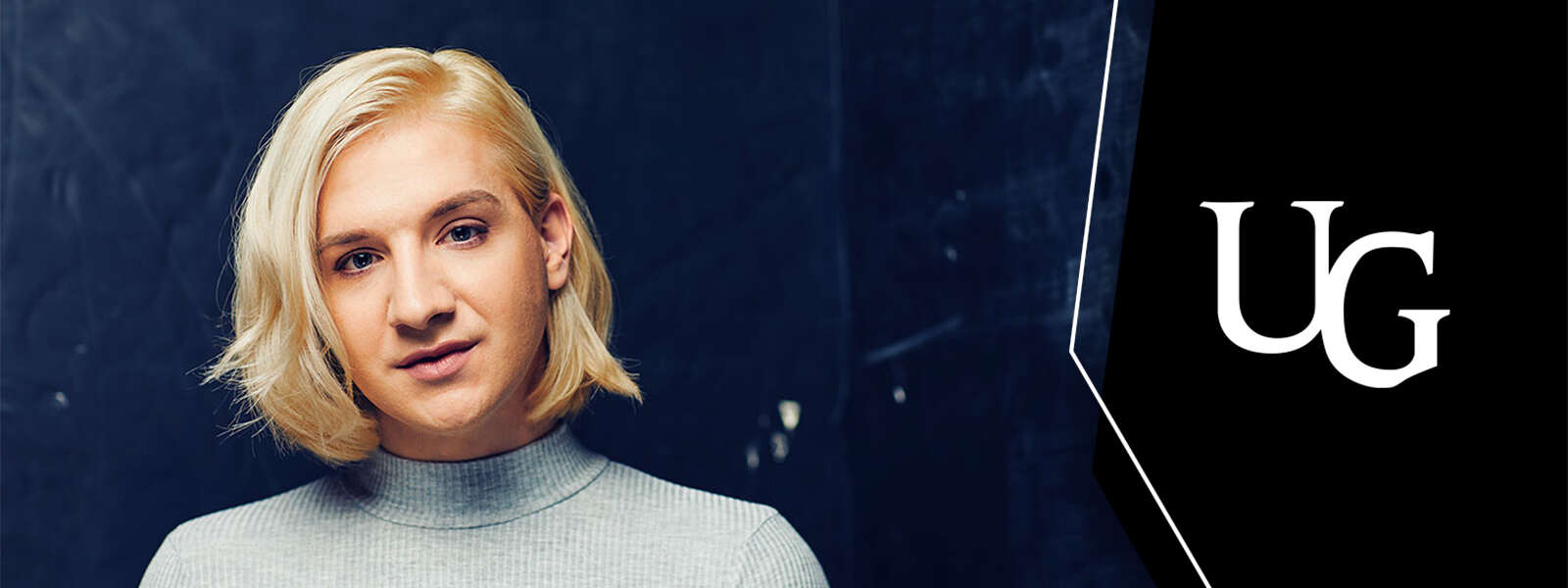Everyone has a gender identity; everyone uses pronouns.
International Pronouns Day (Oct. 19) was created in 2018 to make common practice of asking, sharing and respecting personal pronouns. The observance arrives the week after Coming Out Day (Oct. 11), which many honour in terms of sexuality but which is also about gender identity as coming out can be a continuous and multi-faceted process.
“Coming out is a monumental event or events in someone’s life,” said Caleb Harwood (he/they/she), Sexual and Gender Diversity Advisor at the University of Guelph.
“No one should be assuming pronouns,” they said. “No one should be looking through the lens of who is straight-passing. We really want to be dismantling those ideals because those ideals are what holds up cis heteronormativity.”
Sexuality and gender diversity at U of G
Cis, or cisgender, is the term used for folks whose gender identity aligns with the gender they were assigned at birth. Heteronormativity is the concept that everyone identifies as straight, or “normal” and is therefore superior. It perpetuates the idea that there are only two genders: female and male.
Harwood’s role in supporting and advocating for the LGBTQ2IA+ community at U of G is wide-ranging. They provide one-on-one and group advising for students, faculty and staff; lead the OUTline team of student staff and peer helpers who run programming and operate a confidential online chat; promote queer-focused clubs on campus like Guelph Queer Equality and Queer and Trans People Of Colour (QTPOC); and build LGBTQ2IA+ resources for the U of G community.
Harwood, who received one of their two bachelor’s degrees (in applied science and adult development) at U of G, has seen much positive growth among the University’s queer community in recent years. “There is definitely a growing desire from queer students to get involved on this campus,” they said. “The LGBTQ2IA+ students coming to our events and programs are really looking for a place to make change for the community and build space for themselves.
“It’s really great to see that level of involvement.”
A weekly LGBTQ2IA+ discussion (currently virtual) connects undergraduate and graduate students in exploring ideas involving sexuality, gender, pop culture, finding community and more. Queer and Trans Black and Racialized Students have a social planned Oct. 25 on campus and the Trans and Gender Diverse Students’ Discussion will take place Nov. 8 in the Gryphon Lounge.
CampOUT is an in-person social discussion space where students can connect confidentially to share coming-out experiences involving sexuality and gender identity. Contact CampOUT@uoguelph.ca for more details.
Intersectionality an important thread running through queer community
An important thread that runs through Harwood’s work is a passion for intersectionality and shifting the academic focus to include visceral knowledge in addition to empirical research.
“Providing support and building community for LGBTQ2IA+ students has to acknowledge and also support equity-deserving intersecting identities,” Harwood explained. “Students may also be a part of the First Nations, Métis and Inuit communities, Black communities, communities of colour, cultural communities, faith-based communities, disability communities, and others.
“The work can truly only be done when we honour each other’s shared and diverse experiences.”
Part of that requires unlearning that which society has conditioned people to think are wrong, they said, and then relearning from those sharing the knowledge through lived experience.
“Safety in sharing pronouns is very key, and something we should be moving toward within the University is creating a space where everyone is welcome to share their pronouns without fear of judgment,” Harwood said.
“We have an expectation that pronouns are respected because using the pronouns an individual has chosen is key to treating that individual in the way they want to be treated.”
If you or someone you know needs LGBTQ2IA+ resources for any reason, please visit the resource page under Student Experience on the University of Guelph website.
To reach the OUTline team, email OUTline@uoguelph.ca
Contact:
Caleb Harwood
sgd@uoguelph.ca
